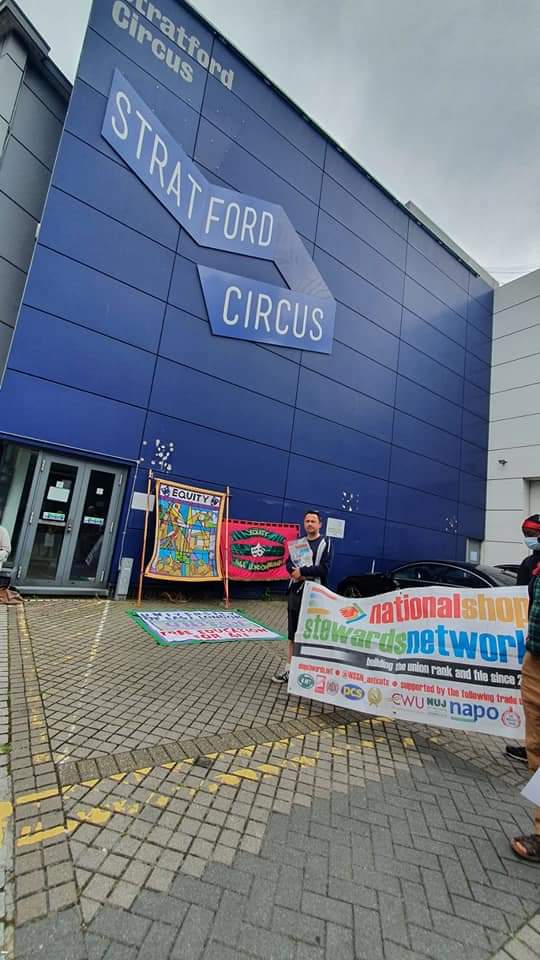James Ivens, Equity and Socialist Party member
Performing arts union Equity is about to vote on major constitutional changes. The proposed new rulebook clears many right-wing impediments to campaigning – good!
Unfortunately, it also narrows grassroots democracy. And the process for agreeing changes has rested on consultation through open meetings, not a democratic representative conference.
On balance, Socialist Party members in Equity feel we must call for a ‘no’ vote in this rules referendum. The proposed changes do come from a left leadership whose hard work and good intentions we support. A ‘no’ vote would give them the opportunity to revisit the content and process.
Many headline changes grant the union more power to lead struggle. For example, they delete limits on what issues the union can fight, reducing the right’s scope to tie up campaigns with legal challenges – a running sore in Equity.
The words “so far as may be lawful” will also go – as argued for by the Socialist Party alongside other lefts during the consultation process. If Equity has to break the bosses’ anti-union laws, it can now do so without leaders or members risking repercussions from their own rules.
However, the democratic role of branches and national conference is reduced overall.
Branches are the basic democratic bodies of any union. Local members can collectively talk through conditions and chew over national decisions.
The conference – with representatives elected by branches – is the parliament of the union. It can give broader collective input, and act as a check on the elected national executive, Equity Council.
The election of branch representatives has partial democratic improvements in the proposed rules. But the number of branch motions to conference would fall from one per branch – already low – to a handful per region, which branches will have to compete for.
The right-wing rule that only motions passed by two-thirds are binding remains. And some of Council’s new powers are good, but for example also include the potential to call more referendums without reference to conference.
Avoidable dangers
The leadership is rightly concerned that branches have too little engagement and discussion. This has led to some conference motions and representatives being out of touch with the industrial needs of the wider membership.
But narrowing the channels for the union’s ranks to control Equity won’t overcome the source of these issues. In the meantime, it’s allowing some on the right to dishonestly pose as defenders of democracy.
The strike wave in the wider movement will inspire a new generation of activists. Leading our own bold campaigns that mobilise members – including industrial action where appropriate – can draw more in. Reorganising members’ connections with branches, committees and conference to expand input from workplace groups would be useful too.
But the current proposals, overall, reduce opportunities for members to exercise collective, democratic control. In the long term this will make it harder to retain buy-in from newly active members – and for the left leadership itself to remain in touch. Worse, should the right come back into power nationally, it would have even more scope to run Equity over members’ heads.
In our view these are avoidable dangers which actually underline the importance of major rule and policy changes being subject to collective discussion and redesign by conference. A rule change on this scale would always go through conference in any other democratic union, and traditionally has done in Equity too. Multiple branch motions and appeals from activists did not convince Council of this need.
So, having heard suggestions at open meetings, Council will present the finished document to the whole membership by referendum. (There will be the usual statement for and against. If – as seems likely – the statement against has been given to the right, some of the most important dimensions of this debate will be absent.)
In a referendum we can only say ‘yes’ or ‘no’. We say vote ‘no’ and call for a conference. Not as opponents of Equity’s new direction, which under a left general secretary and Council is aiming at more activity and militancy. But as critical supporters of that trend, ensuring the job won’t be left half-done and go backwards.
- Members will receive ballot papers with the autumn issue of Equity magazine, posted on 28 October. The vote closes at 12 noon on Friday 2 December







